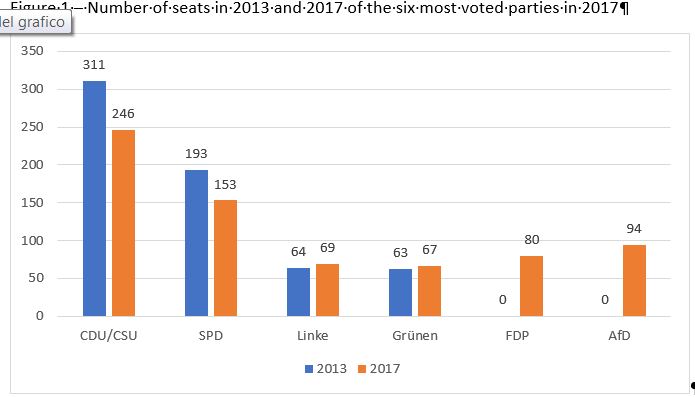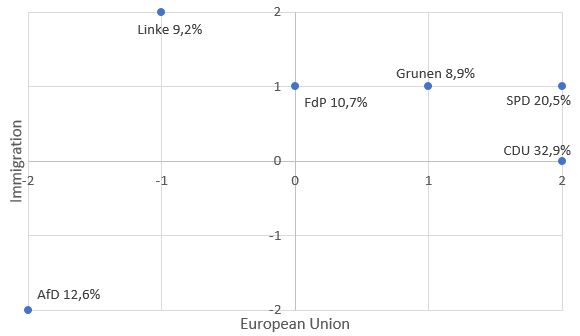German elections: comment on the outcome
by Marta Regalia
The meaning of the September 24th general elections in Germany is not straightforward.
On the one hand, the Prime Minister Angela Merkel won the election but lost 65 seats (about 20% of her 2013 seats). Also the SPD lost 20% of its 2013 seats (40 seats out of 193). Those seats went to the two parties which were excluded from the Bundestag in 2013: the liberals (FDP), that gained 80 seats, and AfD with 94 seats. Both the Left (Linke) and the Greens (Grünen) gained a handful of seats (Figure 1).
On the other hand, AfD, the far-right party that is both anti-immigration and strongly Eurosceptic, can claim a resounding victory, while mainstream forces (CDU/CSU and SPD) are still the most voted for parties but are losing ground. Therefore, Merkel’s party, who seems the winner of this electoral race, did, in reality, suffered a strong loss in terms of seats.
For sure, these elections showed two real winners and two relative losers. The losers are Merkel’s party and Merkel’s government allied, the Social-democratic party (SPD), that suffered an important loss of seats (about 20%). On the contrary, the real winners are AfD and the Liberal party (FDP) that passed from no seats in 2013 to, respectively, 94 and 80 seats in 2017.

If we frame these results in terms of attitudes toward immigration and the European Union (Figure 2), we can see that 62,4% of the votes were cast in favour of parties which have a positive standing toward the EU (CDU/CSU, SPD, Grünen), while only about one third of them (21,9%) in favour of anti-EU parties (AfD and Linke).
The situation is less unbalanced if we look at immigration. 12,6% of the electorate voted for AfD that is strongly anti-immigration. On the contrary, about half of the votes (49,4%) were cast in favour of parties with a more positive standing on immigration (SPD, FDP, Grünen and Linke).
Figure 2 – German parties’ positions on immigration and European Union

 English
English Italiano
Italiano